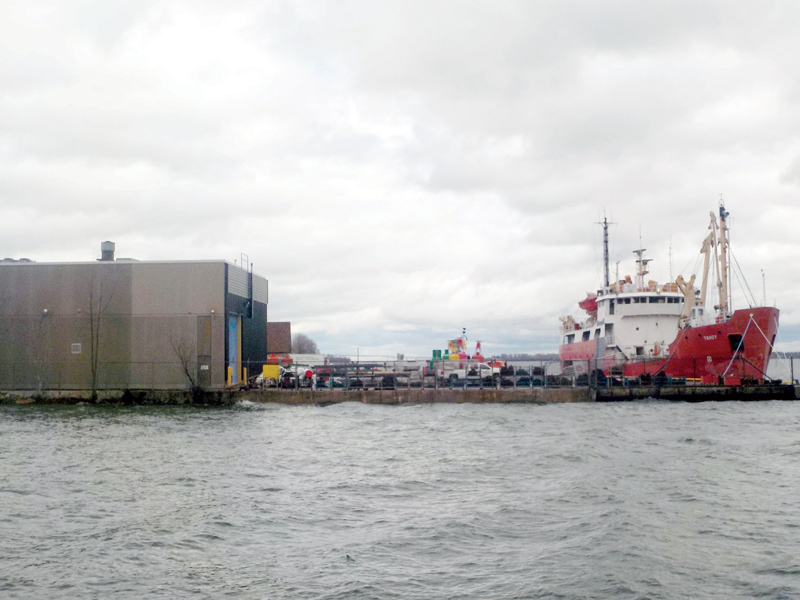Coast Guard at Prescott
Tom Van Dusen
AgriNews Staff Writer
PRESCOTT – Grenville County political leaders are agitating about depleted resources at the Canadian Coast Guard headquarters in Prescott, claiming the service can no longer protect the St. Lawrence Seaway against emergencies.
Speaking recently, Senator Bob Runciman – an area resident – noted the workforce at the Seaway CCG base has been reduced by two-thirds, from about 120 to 40, rendering it unable to deal with a significant spill or accident in the shipping channel used – among general merchandise – to transport grain and other agricultural products.
Statistics indicate that, over the past nine years, there have been 40 shipping incidents between Montreal and Lake Ontario, including spills, groundings and mechanical failure. All of them tend to tie up traffic and pose a threat to shoreline communities.
“These people were trained to save lives, to deal with hazardous materials, to deploy a boom, to use emergency radios,” Runciman stated of the decimated CCG workforce. “Those positions are now long gone.”
There’s steady ship traffic past Prescott every day, with an average of 45 comings and goings weekly at this time of year, including tugs towing barges and ocean-going freighters. A few kilometres east of Prescott is the Port of Johnstown where ships call regularly to pick up grain and offload a variety of cargo including road salt.
Runciman was backed by Prescott Mayor Brett Todd who lately has been lobbying with other regional politicians for changes in the transportation of hazardous goods in inclement conditions on Ontario highways, notably the 401 which passes through the community.
Todd’s concern was heightened by a fatal accident along the 401 in March that involved the spill of fluorosilicic acid. He wants Minister of Transportation Stephen Del Duca to attend a meeting in Prescott to discuss transportation concerns.
One proposal is for implementation of lower speeds on the highway during inclement weather; another calls for further restrictions on hazardous loads. The Ontario Trucking Association has rejected the notion of any new limitations.
Turning his attention to nautical transportation, Todd called it a “travesty” what the federal government has allowed to happen to the Prescott base, one of the town’s more prominent facilities fronting as it does on King Street, the main business thoroughfare.
“It’s just a shell of what it used to be, with all of the base shops closed, jobs eliminated, and rescue operations cut back so dramatically that we no longer even have helicopters here to cover this big stretch of the St. Lawrence.”
“I go by there on a daily basis and never stop thinking about what a tragedy it is to see the base in its current condition. Now the building which is still in excellent shape is mostly empty and I feel a sense of betrayal by the federal government.”
Like Todd, Runciman touched on the “dramatic” economic impact of the loss of well-paying Coast Guard jobs. Todd said he’s been trying for two years to get more employment back to the base.
While crude oil doesn’t travel the Seaway, other petroleum products do, not to mention hundreds of thousands of litres of diesel which propel the freighters.
“The environmental and economic implications of a major spill in the region can’t be overstated,” Runciman concluded.













